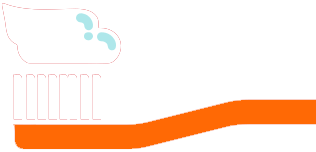No one wants to experience trauma to the jaw. Not only can a broken jaw be painful, but it impacts so many essential activities like talking, eating, and even breathing. If you've experienced an injury to the face, seek out treatment immediately — you might have a fractured jaw. Understand what can cause a fractured jaw, the symptoms associated with it, what you can expect for treatment, and how it differs from a dislocated jaw.

How A Fractured Jaw Is Identified And Treated
Medically Reviewed By Colgate Global Scientific Communications
What Causes a Broken Jaw?
Your jaw is comprised of two cooperative bones: the upper jaw called the maxilla, and the lower jaw, known as the mandible. The two bones are connected at the temporomandibular joints (TMJs) located in front of your ears on either side of your head. The mandible handles most of your mouth's mechanics, including opening, closing, and chewing. A fractured jaw occurs when one of these bones cracks or breaks.
Common causes for a broken jaw include:
- Accidental falls, especially when you are unable to catch yourself with your hands
- Motor vehicle accidents, including motorcycles and bicycles
- Sports-related injuries
- Industrial work-place accidents
- Assaults or a punch to the jaw
How to Know If Your Jaw is Broken
If you've received an injury and are concerned about a fractured jaw, see your physician immediately. Some broken jaw symptoms include:
- Pain in the face or jaw
- Bruising and swelling
- Missing teeth or bleeding inside the mouth
- Pain or difficulty when moving the jaw
- Numbness in your lower lip or chin from a damaged nerve
How Do You Treat a Fractured Jaw?
Because it can impact your ability to breathe, every jaw injury should be treated as an emergency. Seek medical intervention immediately and ensure the jaw is supported and the airway remains open until you receive treatment. Once you arrive at the hospital, the physician will conduct a physical exam and order X-rays to determine the severity of the injury.
Fractured jaw treatment will depend on the severity of your case. If you have a minor fracture or a clean break, your treatment might include wrapping a bandage around your head to support your jaw and prevent it from opening too wide. Your physician might also recommend over-the-counter pain medications to assist with the pain and swelling.
More severe fractures might require the physician to wire your jaw shut so it can heal. These wires or elastic bands help keep your jaw closed and in the correct position, and you can expect to wear them around six weeks. During this time, you will need a liquid diet until you can chew solid food again. Your physician might prescribe painkillers or antibiotics to help with the pain and prevent any infections. Afterward, exercises will help strengthen these inactive jaw muscles so you can return to full strength and function.
What's the Difference Between a Fractured and Dislocated Jaw?
Pain in the jaw and face could also be the result of a dislocated jaw. A dislocated jaw occurs when your jaw moves out of position at one or both of the TMJs. It can be challenging to tell the difference between a fractured and dislocated jaw without the help of a medical professional. Some symptoms of a dislocated jaw include:
- Pain in the face or jaw
- Pain or difficulty when moving the jaw
- Inability to close the mouth
- Misalignment between the mandible and the maxilla
- An over or underbite
To treat a dislocated jaw, a physician will manually reposition the jaw back into place using their hands. This is called a manual reduction. Afterward, the physician might use a supportive bandage to restrict movement for a few days while the area heals.
Jaw injuries are no joke, so always take precautions when possible, including wearing a seatbelt in the car or protective equipment while playing sports. See your dentist or physician if you feel pain in your jaw or have difficulty talking or chewing. You might be experiencing the effects of teeth grinding, TMJ disorder, periodontal disease, or a fractured jaw. Your medical professional can help you determine the cause of your discomfort and take steps to get your smile back to normal.
Oral Care Center articles are reviewed by an oral health medical professional. This information is for educational purposes only. This content is not intended to be a substitute for professional medical advice, diagnosis or treatment. Always seek the advice of your dentist, physician or other qualified healthcare provider.







